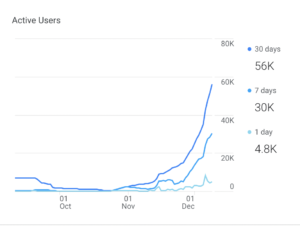SEM – Search Engine Marketing Analysis
Whether you want to improve your Search Engine Marketing (SEM) strategy or want to understand how it works, conducting a Search Engine Marketing Analysis can be an extremely valuable exercise.
At its most basic, a Search Engine Marketing Analysis entails taking a close look at your current SEM efforts and assessing their effectiveness. This can be done by looking at various metrics, including click-through rates, conversion rates, and overall ROI. Additionally, you will want to consider your SEM goals and objectives when conducting your analysis.
Once you have gathered all this information, you can begin making changes to your SEM strategy as needed. This may include changing your keywords, altering your ad spend, or even completely overhauling your approach. By regularly conducting Search Engine Marketing Analysis, you can ensure that your SEM efforts always work to their fullest potential.
The purpose of this post is to give a comprehensive overview of search engine marketing and its relevance in marketing. Topics include how search engines work, the drawbacks of SEO, how search engine algorithms rank pages, Google’s ranking factors and quality score, Bing’s Quality Score Indicator (QSI), ways Google rewards good content, and so on.
Keyword Research Techniques
While there are many different keyword research techniques, the main ones include the following:
The search engines themselves. Searches are done using a variety of search engines optimized to handle specific types of searches. For example, Yahoo and Google can help you find people who have issues with a website similar to yours or want to learn more about something you specialize in. Bing also has its own set of search features that help with searches related to that site.
While these are not the only search options, these are some of the most widely used. Additionally, all of these search engines can be accessed through what is known as a meta-search engine. A meta-search engine can search several different sources to find exactly what you are looking for. The most popular meta-search engine is www.dogpile.com which allows you to search multiple sources, including Google, Bing, and Yahoo, right in your search bar.
Expert Opinions
This is where you turn to an expert in the field you are looking for help in. Experts may include (but are not limited to) associates in a specific niche, professionals such as certified public accountants or lawyers, etc. You can also research expert opinions on many different websites, including:
The main goal is to find a statistically significant sample of most of your niche’s population. The best way to do this is to find a website that covers the topic of your expert survey in depth and will offer you a full list of experts at the bottom of their page. A good example of one of these websites is www.crunchbase.com which allows you to search for the specific niche you are looking for and find both websites and experts in that niche (as well as their social media contact information).
The Competition Synthesis Technique
This technique is used when you cannot find a statistically significant group to survey. You will need to locate a sample that consists of most of the population and then use this sample to find a list of potential competition. Using the competition synthesis technique, you can create your list of competitors in your niche to help you decide how best to market yourself using search engine optimization techniques.
Keyword Research: What You Need to Know
Before you start working on your SEO techniques, you need to determine what your competition is doing. This can be achieved through some different keyword research techniques to help determine what your competitors are doing and how you can best improve SEO.
The search engines themselves can be used to find potential keywords from the vast amounts of information that are uploaded every day. The search engines create a log of all the information they have indexed and categorize it. This process is called indexing, and it takes place continually. Once you have identified keywords you believe are relevant to your niche, you should review the search logs on your content to see if these are being used anywhere else in the world. If they are not, you may be able to use these keywords for your content creation, which will help improve SEO results.
Additionally, you can use your content to help develop a more focused keyword list. Using the competition synthesis technique, you can find what keywords your competitors are using within their content. You should then add these keywords to the keyword research techniques outlined in this article so they can be used in your keyword strategy.
When it comes time to determine which keywords will get you the most traffic, there is no single answer. Instead, you should create a list of keywords you want to win with and then use the competition synthesis technique to find other keywords in your top 5. By doing this, you will also be able to determine whether your keyword strategy will work or not by seeing which keywords your competitors are using within their content.
The Bottom Line on Keyword Research
Remember, the best way to get good search engine results is by having quality content with unique and relevant information. At the same time, you need to get it in front of people so they can find it. The best way to do this is by using an optimized title and a good meta description.
Title Optimization
Make sure your keyword is in the title of your page, as this directly influences search engine results. Use various words in the title that are relevant to your writing. Use between 70 and 155 characters or less (including spaces).
Meta Description Optimization
This will also influence search results. Make sure the meta description is between 150 and 320 characters and that it is relevant to the keyword you are optimizing for. Make sure the sentence makes sense if it was taken out of context from the page it self. Also, ensure that your meta description does not contain links to your site or links pointing to any other site. If you are using a meta description service, ensure it is set to “above the fold” along with your link so that the search results will not cut it out.
Keyword Research and SEO Keyword Strategy Using Competitive Analysis
This technique will help you identify all of the keywords in your industry and whether or not they will be relevant to what you are writing about. The idea behind competitive analysis is to find keywords that have already been searched for by people in your niche. This will help you determine the keywords with the highest rankings in search engines and what terms are most likely to bring in traffic to your site.
When it comes time to identify your list of keywords, you can do a few things to improve the quality of your content. You should first create a list of questions at the top of each page so people will know what they should expect on that page. You will also want to create a landing page on your website that tells people what the page is about, so they know what they will be getting once they get there. This way, you can use better keywords in your content and ensure people know it is there.
Remember, the key is to create good quality content relevant to each keyword and give people something useful and unique. This is how you can improve search engine results while ensuring they see what they need without being distracted by anything else.






